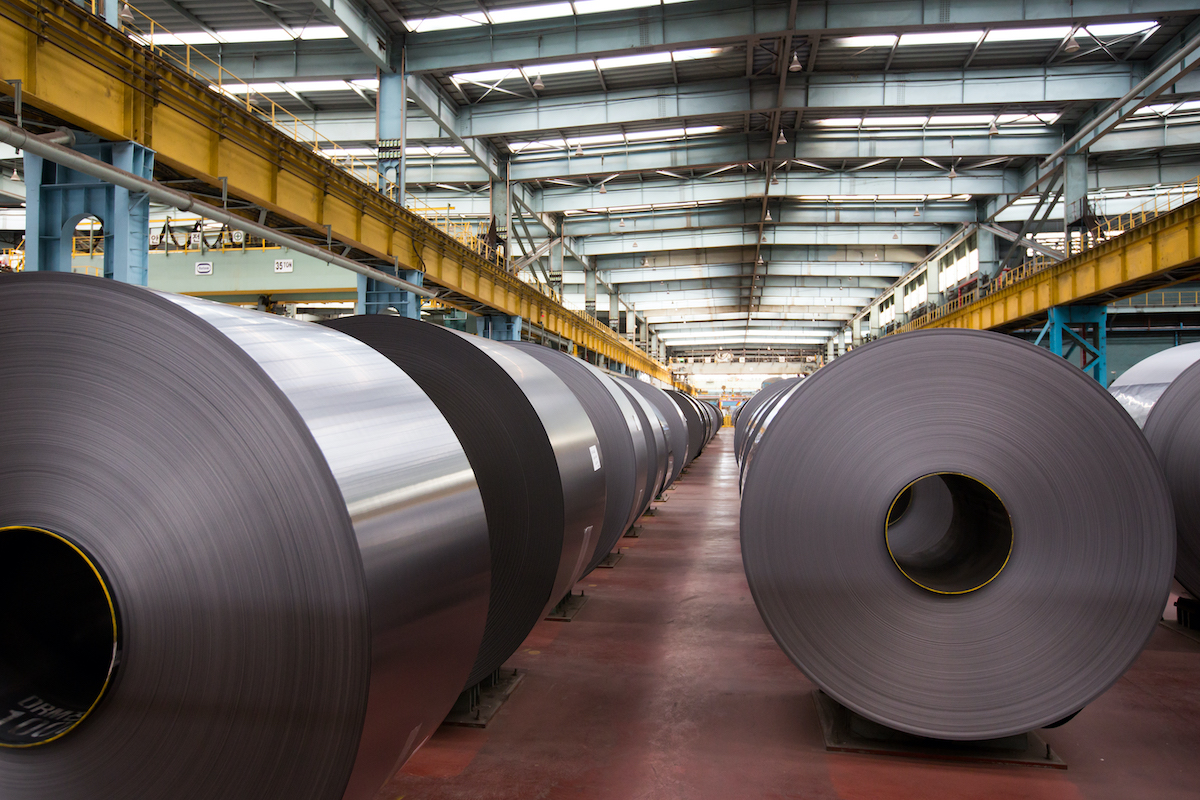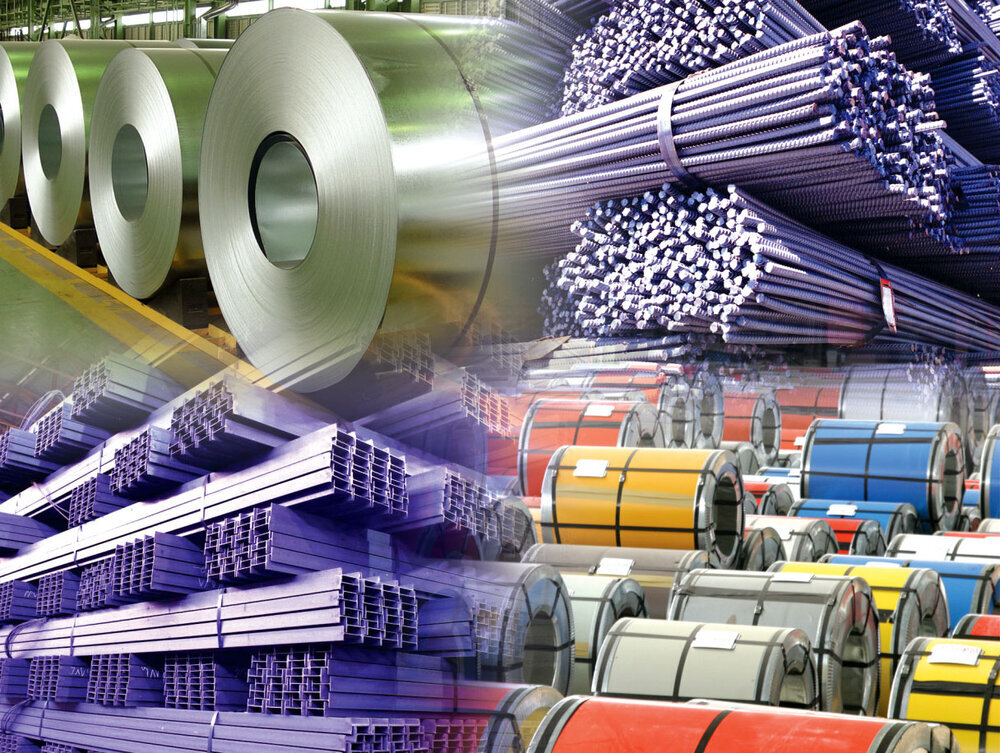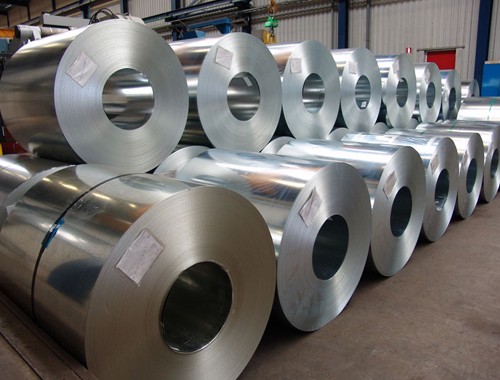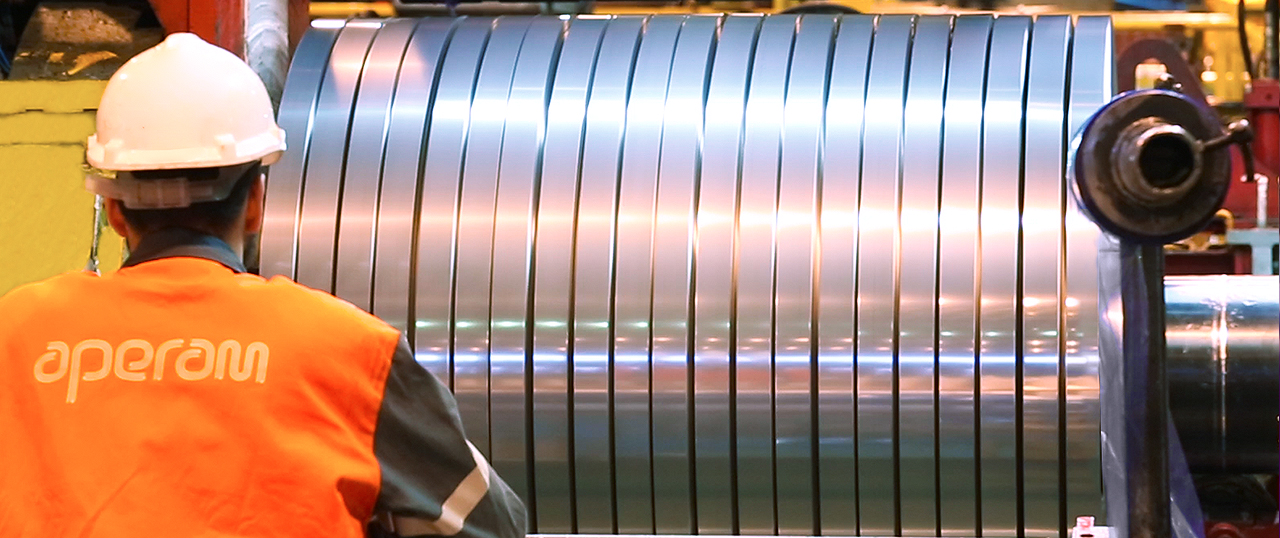
German trade matching portal Ferroso opens to market
Ferroso, an online portal for steel buyers and sellers founded in summer 2020, and initially operating with a selected limited numbers of participants, has now opened up for the entire market.
The founders of the Essen-based company describe Ferroso as a matching tool, rather than an online market place that requires distributors and consumers to study long lists. Instead, buyers enter the products they need in a search function and receive matching offers with prices, delivery conditions and contact details of the seller. On the other side, sellers receive only inquiries that fit their portfolio, Kallanish understands.
“On the steel market, people do not all speak the same language. Product terms may vary, and distributors differ in their ranges of products, shapes and measures,” chief executive Joanna Funck says of Ferroso’s approach.
Its data bank so far counts more than 250 distributors and several hundred inquiries, but the actual matching service has been limited to the selected participants. Now that it has been opened to the public, “the more companies that participate, the better the service works,” Funck says. The company had half a dozen employees in December and plans to double the number in 2022.
Christian Koehl Germany


German SBQ stockholders reshuffle ownership
Heine + Beisswenger, a German steel distribution group selling and processing special bar quality steel (SBQ), has assumed full ownership of Heine + Bleck in Hermsdorf, Thuringia, as of 1 January.
The eastern German house until last year was partly held by Andernach + Bleck, a bright bar producer based in Hagen, North Rhine Westphalia. Also as of 1 January, Andernach + Bleck sold its stake in a house in Bremen, Roland Stahl, to Alois Schmitt GmbH. Andernach + Bleck, which in Italy owns Metalli Trafilati, says it will keep focusing on its bright bar production, and keep supplying the houses in Bremen and Thuringia.
Separately, Heine + Beisswenger in December announced that it has forged a partnership with mill group Georgsmarienhütte Holding (GMH) and tool maker Sandvik Coromant for the promotion of carbon-free steel. So far, the partners within their alliance pursue separate activities, Kallanish understands. Georgsmarienhütte earlier announced that it will make CO2-neutral bars in its EAF by means of green electricity. Machining specialist Sandvik Coromant’s low-emission ambitions focus on one of its products for the aviation and automotive industry.
Heine + Beisswenger will be banking on renewables for its logistics, storage and processing services. The group is headquartered in Fellbach in southern Germany. It operates 12 sites and per year and processes some 250,000 tonnes of bar steels.
Christian Koehl Germany


Metinvest invests $20 billion in green steel
Metinvest will focus in the next few years on known and proven technologies for the reduction of the carbon footprint of its Ukrainian assets, the company’s general director Yuri Ryzhenkov says in an interview published on its website.
This includes direct reduced iron (DRI) in combination with electric arc furnaces (EAF). This step-by-step approach to delivering on its objectives will help the company reduce CO2 emissions by more than 90% by 2050 and completely abolish the sinter-making process, he adds.
Metinvest Group intends to invest $1.3-1.5 billion annually over the next 3-4 years, Kallanish notes.
“The final stages of the strategy are expected to include the use of hydrogen, but today there is still no way to produce cheap hydrogen either in the country or anywhere else in the world,” Ryzhenkov notes. “That is why we have set this time frame in the hope that a method for producing cost-effective hydrogen will be found.”
In the short term, Metinvest intends to invest $1 billion in organising the production of high-quality raw materials at Severny GOK, which can be used in green steel production.
“The construction of a plant with a capacity of 4-4.5 million tonnes/year of electrical steel will require at least €2 billion ($2.2 billion),” Ryzhenkov says. “In order to change the technology completely, the estimated costs will be about $15-20 billion over the next decade and here we need government support.”
However, today there are no decarbonisation programmes in Ukraine, or even any progress on developing them, so we aim to encourage the government to move in this direction, he adds.
Metinvest also intends to increase the efficiency of current processes at one of the factories in Zaporozhye or Mariupol. To this end, the group is exploring the option of launching a new natural gas facility to reduce carbon emissions.
At the moment, the location of the complex is being discussed and completion of the feasibility study is expected in the first half of 2022.
Metinvest is currently discussing a target capacity of 4-4.5m t/y of steel in Zaporizhia and would like to keep volumes of about 9m t/y of finished products in Mariupol.
“If Zaporizhstal becomes a mill that only makes pig iron, then we have the opportunity to develop both the Mariupol site and the site in Kamianske, thus compensating for the retiring steelmaking facilities,” the head of the plant says.
Svetoslav Abrossimov Bulgaria


Gestamp obtains Aenor`s Zero Waste approval for components
Spain’s Gestamp has received accreditation for its products from the national standards association Asociación Española de Normalización y Certificación (Aenor), the major supplier of components to the global automotive sector tells Kallanish.
Gestmap thus becomes the first company in the automotive sector to receive the Zero Waste certification, which recognises its circular economy model, capable of reusing the waste it generates in production processes.
“Aenor verified that 63% of the group’s plants systems meet the requirements of complete traceability waste, from its generation to its delivery, and is in line with all legal requirements associated with this process,” Gestamp explains. From all verified plants, 15% have obtained the Zero Waste certification, while the remaining 48% meet the requirements.
The company applies environmental criteria in all stages of its production, from the selection of suppliers and optimisation of raw materials and natural resources to the management of consumption of energy and water resources necessary for the manufacture of components, waste management and reducing greenhouse gas emissions in the product use phase.
Todor Kirkov Bulgaria


UK 2021 auto sales still below pre-COVID levels, EV sales peak
New car registrations in the UK were steady year on year in 2021 at 1.65 million units, according to data released Jan. 6 by the Society of Motor Manufacturers and Traders.
The annual volume was 28% below 2019’s pre-pandemic levels, due to a number of challenges, including the ongoing semiconductor shortage.
SMMT CEO Makes Hawes said it had been “another desperately disappointing year” for the industry as the pandemic continued to hinder recovery and manufacturers battled with tougher trading arrangements, accelerating technology shifts and the global semiconductor shortage, which was “decimating supply.”
“Despite the challenges, the undeniable bright spot is the growth in electric car uptake… The models are there, with two of every five new car models now able to be plugged in, drivers have the widest choice ever and industry is working hard to overcome COVID-related supply constraints,” Hawes said.
Plug-in vehicles reached a record high in 2021, accounting for more than one in six registrations, according to the SMMT, while pure battery electric vehicle sales rose to one in nine registrations, which was more than the combined volume registered over the 2016-2020 period.
The UK was the third-largest European market for new car registrations in 2021, the second-largest by volume for plug-in vehicles and the second-largest for BEVs, it said.
“It is only in ninth position overall, however, in Europe for BEVs by market share, underlining the progress still to be made, despite the UK having among the most ambitious targets of all major markets with the end of sale of new petrol and diesel cars scheduled for 2030,” SMMT said.
According to the data, BEV sales in 2021 totaled 190,727 units, up 76% year on year to take a 11.6% overall market share, which was up from 6.6% in 2020.
Plug-in hybrid vehicle sales also rose 71% on the year in 2021 to 114,554 units, with the market share at 7%, up from the previous 4.1%.
Sales of hybrid EV for the year also climbed 34% on the year to 147,246 units, a 8.9% share of total sales, up from 6.7% in 2020.
“Following billions of pounds of investment into new technology by manufacturers, more than 40% of models are now available as plug-ins,” SMMT said.
Meanwhile, gasoline cars continued to hold the largest market share at 46.3% or 762,103 units, although the share was down from 55.4% the previous year, while the volume also dropped 15.7% year on year, according to SMMT.
Diesel vehicles’ market share almost halved from 16% in 2020 to 8.2% in 2021, with 135,773 units sold in 2021, down 48% on the year, the data showed.
Risk to net zero ambitions
SMMT said that, while the UK government aimed to end all sales of internal combustion engine cars by 2030, this goal was also being hampered by cuts to purchase incentives and grants for home chargers, which was a risk to the motor industry’s and government’s net zero ambitions.
In March, the government updated its grant scheme for electric cars, vans and trucks, reducing grants for EVs priced under GBP35,000 from GBP3,000 ($4,060) to maximum GBP2,500.
It also removed grants for higher-priced vehicles, as these were “typically bought by drivers who can afford to switch without a subsidy from taxpayers.”
“Furthermore, the slow pace of growth in on-street public charging — where, on average, 16 cars potentially share one standard on-street charger — could put the brake on EV demand and undermine the UK’s attractiveness as a place to sell electric cars,” it said.
SMMT called for incentive extension and mandated charge point targets to accelerate consumer uptake and increase the industry’s competitiveness globally.
In November, the government did introduce new legislation to compel news homes and building, including supermarkets and workplaces, to install electric vehicle charge points from 2022, which would also apply to any building undergoing major renovations that will leave the site with over 10 parking spaces.
The new legislation is expected to result in up to 145,000 extra charge points being installed in England per year.
— Jacqueline Holman

European coils market cautious about cheap imports as auto a ‘bright spot’
European hot-rolled coil steel prices were stable Jan. 6 after the holiday period amid high energy and transport costs, causing great pricing uncertainty for Q1. Sentiment remained mixed about how quickly automotive demand will return, with some buyers still cautious about a price decrease in the face of cheaper import prices, sources told S&P Global Platts.
An HRC import offer price was heard before Christmas at Eur800/mt CIF Antwerp ex-Asia, now updated to HRC Eur750-780/mt CIF Antwerp ex-Korea. A cold-rolled coil import offer stood at Eur880-890/mt CIF Antwerp ex-Asia.
“Domestic players don’t have a choice but to react to cheap import prices,” a German trader said.
The source was still pessimistic about a potential price increase despite a surge in automotive demand, with some original equipment manufacturers now restarting after a production slump.
“Auto is definitely a bright spot, but I’m more pessimistic because prices are sliding down every week — drops are more than Eur20/mt,” the trader said regarding the import market.
On the mill side, a European producer was confident about an uptick in demand from the manufacturing industry, with the Benelux region struggling amid shortened workforces.
“It’s a sign that business is rolling — they’re actively seeking people,” the mill source said.
He added that European car dealerships had reported full order books and were simply waiting for more stock from factories.
“It’s a sign that as long as automotive has cars to deliver, they will sell,” the mill source said.
The EU Commission’s revision of the import safeguards system Jan. 10 could spell further trouble for European players, with the same trading source expecting protectionism to tighten.
Mills looking to export sufficient steel quantities could also face a shortage of available ships, the source warned.
— Amanda Flint


USCommerce says duties on HRC from 7 countries should continue
Removing the US antidumping duty orders on imports of certain hot-rolled flat steel from seven countries would likely lead to the continuation or recurrence of dumping, the US Commerce Department said in a final determination.
The decision follows an expedited five-year sunset review of the antidumping duty orders on hot-rolled coil from Australia, Brazil, Japan, South Korea, the Netherlands, Turkey and UK, according to a Federal Register notice Jan. 5.
Should the duties be removed, Commerce found dumping would likely occur at margins of up to 29.58% for Australia, 34.28% for Brazil, 11.7% for Japan, 11.1% for South Korea, 3.73% for the Netherlands, 24.32% for Turkey and 33.06% for the UK.
This was the first sunset review of the antidumping duty orders, which were put in place in September 2016.
Commerce also issued a final determination that removing the existing countervailing duty order on HRC imports from Brazil would be likely to lead to the continuation or recurrence of subsidies at up to 11.3%. This decision also follows an expedited five-year sunset review.
— Justine Coyne


European stainless coil prices feel Asian decline
European stainless steel hot and cold rolled coil prices remain high this month due to increasing alloy surcharges. However, the effect of declining Chinese and other Asian countries’ prices is beginning to reflect on European coils. EU coil prices are reported to have stopped rising for the first time in months, Kallanish hears from market sources.
While current high values are forecast to continue through 2022, European stainless CRC levels that started from €4,000/tonne ($4,521) delivered in Europe in December are now starting at €3,900. They go up to €4,200/t delivered depending on month of delivery.
Producers are now quoting lead times for the second quarter of 2022, depending on customer and contract, and some are only supplying their own customers and refusing new clients. European mills are said to have full order books.
However, the Asian price decline is being felt on European HRC, which is now sold at €3,700-3,800/t delivered on average. HRC can be found at €3,100/t cfr from Asia, while Chinese prices for both CRC and HRC are said by importers to be around €500/t lower compared to European producers. Italy is a net importer of HRC from Asia and Italian prices are usually lower compared to northern European values.
While sheet and flats prices have increased steadily in all Western Europe, in line with coil hikes, re-rollers are now pushing up values of stainless tube, for which demand has been weaker than stainless flats, Kallanish notes.
Natalia Capra France


Turkey already exhausts various EU first-quarter product quotas
The number of requests awaiting allocation for certain product category imports into the EU already exceeds the permitted first-quarter safeguard quota for those products, indicating the quota is already exhausted. Among the products in this situation is Turkish rebar, Kallanish notes.
As of close on 5 January, 63,555 tonnes of Turkish-origin rebar imports were awaiting allocation by the European Commission, compared to the Q1 quota of 60,592t, according to the Commission’s tariff quota consultation portal.
Merchant bars and light sections imports from Turkey awaiting allocation meanwhile were 87,228t versus the quota of 64,157t. Hollow sections imports from Turkey awaiting allocation were 86,910t versus the quota of 68,575t. Turkish-origin hot rolled coil had 280,741t awaiting allocation versus the quota of 323,205t, suggesting it could be exhausted soon.
Various Indian-origin products have also already exhausted or are about to exhaust EU quotas. Cold rolled coil imports from this destination awaiting allocation were 163,795t versus their Q1 quota of 147,656t. Category 4A coated sheet imports from India awaiting allocation were 76,141t versus the quota of 48,560t. Organic coated sheet imports from India awaiting allocation were 125,255t versus the quota of 71,152t.
Category 4B coated sheet imports from China awaiting allocation meanwhile were 181,830t versus the quota of 116,083t.
Adam Smith Germany


Aperam increases alloy surcharges again
French stainless steel producer Aperam has increased its January alloy surcharges for its austenitic range of flat stainless steels for Europe by €100/tonne ($113) on average versus December. This comes on top of the €100/t increase announced last month, Kallanish notes.
The surcharge for grade 304 (1.4301) has gone up from €2,361/t last month to €2,427/t effective 1 January. For grade 316 it has increased from €3,563/t to €3,643/t. Grade 309S, a heat-resistant stainless steel used in high-temperature applications, has seen its surcharge remain stable this month at €3,267/t. The surcharge for the most popular ferritic grade, 409, however, has gone down for the first time in months, from €1,002/t in December to €922/t in January, the company reveals.
Offers for nickel cash buyers reached $20,925/t on 31 December, Kallanish notes.
Natalia Capra France


